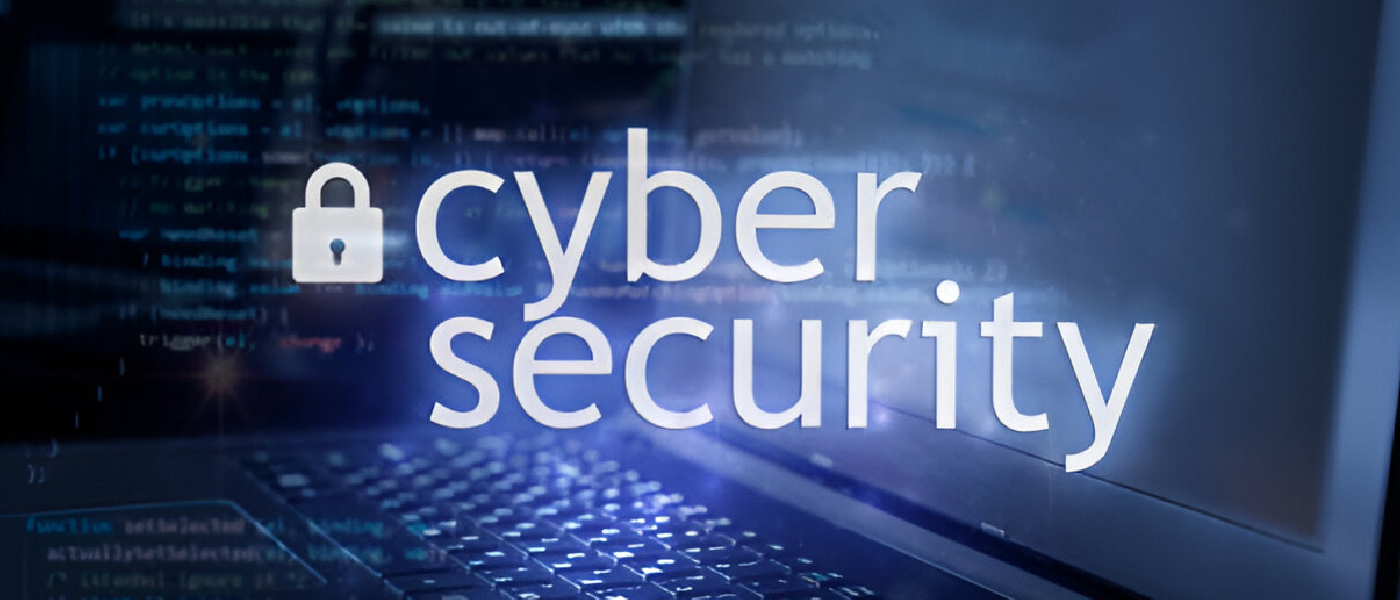The job market for cybersecurity professionals in Georgia continues to grow, so students are faced with the significant challenge of choosing the right degree program.
Determining which program provides the best value and quality can be confusing out of the many options available. With the help of this article, we will provide a comprehensive overview of Georgia’s top cyber security degree programs. In order to choose a program that is suitable for your needs, you may need to take these factors into consideration.
Be sure to read to the end to learn detailed information about different colleges and universities offering bachelor’s and master’s degree programs in cybersecurity.
In-Demand Cybersecurity Degree Programs in Georgia
Let’s take a look at some of the most in-demand cybersecurity degree programs offered at top institutes in Georgia.
Undergraduate Cybersecurity Programs in Georgia
- Augusta University
Augusta University’s Bachelor of Science in Cybersecurity program provides students with solid technical skills. With their state-of-the-art labs, you’ll learn network configuration, programming, scripting, cloud computing, and much more. You’ll also learn how to safeguard your data and systems against hackers and other threats, along with these technical skills.
This program meets the requirements for CAE Cyber Defense (CAE-CD) and is validated by CAE.
- Program link: BS in Cybersecurity
- Acceptance rate: 86%
- Fees: $17,794
- University of North Georgia
In UNG’s Bachelor of Science in Cybersecurity program, future cybersecurity professionals are prepared to safeguard industries, governments, and military networks. The Cybersecurity B.S program requires a wide range of courses in both information security and computer science, including script programming, data networking and practical application in cybersecurity, along with a capstone project. This degree complies with the NIST/NICE framework for cybersecurity careers in the SP, PR, AN, and IN categories.
UNG is recognized by the Department of Homeland Security (DHS) and the National Security Agency (NSA) as one of the National Centers for Academic Excellence in Cybersecurity (NCAE-C).
- Program link: BS in Cybersecurity
- Acceptance rate: 70%
- Fees: $24,062
- Kennesaw State University (KSU)
As a graduate of Kennesaw University with a major in Cybersecurity, you will be able to become a highly qualified, business-savvy and technically competent cybersecurity professional who can apply technical skills and security management knowledge to protect computerized information systems from various threats.
As part of the B.S in Cybersecurity program, you will acquire advanced knowledge and skills in technology and business, as well as an understanding of cybercrime issues affecting the marketplace today.
- Program link: BS in Cybersecurity
- Acceptance rate: 68%
- Fees: $26,959
- Columbus State University
With Columbus State’s Bachelor of Science in Cybersecurity, you’ll be prepared to pursue a successful career in this rapidly evolving field.
You’ll learn to secure networks and information using cutting-edge technologies in a curriculum focused on cutting-edge technologies. You will study cybersecurity at CSU’s TSYS Cybersecurity Center. The facility aims to foster technological innovation, expand cyber research, and develop advanced cybersecurity practices.
- Program link: BS in Cybersecurity
- Acceptance rate: 98%
- Fees: $16,543
- Gwinnett Technical College
An associate degree in cybersecurity is offered by Gwinnett Technical College in order to assist students in preparing for a career in cybersecurity. As a result of completing this degree program, graduates can perform a variety of functions, including the prevention and detection of cyberattacks, monitoring network activity to avoid internal threats, assisting with disaster recovery, auditing, testing, and using encryption techniques.
Throughout the fall, spring, and summer semesters, Gwinnett Tech offers cyber security courses at its Lawrenceville and Alpharetta-North Fulton campuses. Classes are scheduled during the day or in the evening.
- Program link: AAS in Cybersecurity
- Acceptance rate: 95%
- Fees: $12,953
Masters Program in Cybersecurity in Georgia
- Georgia Institute of Technology
Among the ten top colleges ranked by U.S. News & World Report, Georgia Tech is the only university that offers an interdisciplinary master’s degree in cybersecurity online, on your schedule, for less than $11,000 tuition. Working professionals can complete this part-time program in two to three years, offered part-time.
As part of the OMS Cybersecurity program, you will gain an understanding of the way cyber and cyber-physical systems can be attacked and vulnerabilities such as software, networks, and computers can be exploited.
- Program link: MS in Cybersecurity
- Acceptance rate: 20%
- Fees: $11,346
- Mercer University
Master’s degree programs in cybersecurity at Mercer University prepare you to manage secure systems and protect against cyber threats. You will be equipped to lead confidently in a fast-changing field with hands-on training and expert faculty guidance.
Students are equipped with skills that enable them to be prepared to meet the diverse challenges of cybersecurity as a result of this cross-disciplinary approach. This course will give you the opportunity to work on technical and strategic projects, preparing you for a variety of roles in the future.
- Program link: MS in Cybersecurity
- Acceptance rate: 67%
- Fees: $20,884
- University of Georgia (UGA)
UGA’s School of Computing has established the Institute for Cybersecurity and Privacy (ICSP), recognized as a National Center of Academic Excellence in Cybersecurity Research by the National Security Agency and the Department of Homeland Security.
All students will benefit from the MS program, especially those with an interest in the computer sciences, mathematics, and engineering. As part of the program, students will develop knowledge and skills related to computer security and privacy. These include networks, operating systems, network and system security, as well as media and communication privacy.
- Program link: MS in Cybersecurity and Privacy
- Acceptance rate: 37%
- Fees: $11,440
- Kennesaw State University (KSU)
KSU’s online master’s in cybersecurity degree is ranked as one of the top programs in the nation. As a student participating in this cybersecurity program, you will get a lot more than practical skills; you will be given the tools necessary to become an expert in this fast-paced field.
Upon completion of the program, students will be prepared to plan, develop, implement, and lead cybersecurity initiatives in an organization in response to and recovery from cyberattacks and incidents. In addition, it will provide practical methods for solving real-world problems related to cybersecurity, and it will allow them to manage cybersecurity risk to information assets.
- Program link: MS in Cybersecurity
- Acceptance rate: 68%
- Fees: $43,234
- University of West Georgia
The Master of Science in Strategic Cybersecurity and Information Management (SCIM) degree offered by the University of West Georgia combines technical knowledge and critical cybersecurity skills with a focus on both enterprise leadership practices and management strategies.
As part of the program, technical topics like vulnerability testing, threat detection, and digital forensics are woven into strategic managerial topics to demonstrate the strategic application of cybersecurity best practices, including protection of data, privacy, policies, and risk assessments. Further in this SCIM program, students learn how cyber threats affect their organization’s mission, as well as how to identify and assess cybersecurity vulnerabilities.
- Program link: MS with Major in Strategic Cybersecurity and Information Management
- Acceptance rate: 50%
- Fees: $5,610
Criteria for Getting Cyber Security Degrees in Georgia
It is necessary to meet certain academic and professional criteria in order to earn a cybersecurity degree in Georgia. These criteria vary based on the degree level and the institution. Below is an overview of the general requirements for bachelor’s and master’s programs in cybersecurity within the state.
Bachelor’s Degree in Cybersecurity Requirements:
To enroll in a bachelor’s program, applicants typically need:
- Educational Background: A high school degree, diploma or something equivalent.
- GPA Requirements: A minimum GPA, often around 2.5 to 3.0, may be required, but this varies from institution to institution.
- Standardized Test Scores: Some programs might require SAT or ACT scores, though certain programs might waive this requirement. For instance, Kennesaw State University’s Bachelor of Science in Cybersecurity program does not require SAT or ACT scores if the prospective students have a CGPA of 3.2 or more.
- Prerequisite Coursework: Completion of high school courses in mathematics (such as algebra and calculus), science, and computer science can be beneficial.
Prospective students should consult the admissions pages of their chosen universities for detailed admission requirements.
Master’s Degree in Cybersecurity Requirements:
Admission to a master’s program generally requires:
- Educational Background: A bachelor’s degree from an accredited institution, preferably in a related field such as computer science, information technology, or engineering.
- Prerequisite Coursework: Foundational knowledge in areas like calculus, data structures, and programming languages (e.g., Java or C++). For example, Georgia Tech’s Online Master of Science in Cybersecurity expects applicants with non-technical backgrounds to have at least one college-level course in computer science or programming.
- GPA Requirements: A minimum undergraduate GPA, often 2.5 or higher. Georgia Tech requires a 3.0 or higher GPA for Master degree program admissions.
- Prior Experience: Practical experience in information management and programming
Just as mentioned before, admission requirements might differ so it is always a good idea to take a look at the admission page of the university for detailed and exact requirements.
Conclusion
Georgia hosts a number of companies that offer exciting job opportunities in the cybersecurity field along with several institutes designated as National Centers of Academic Excellence in Cyber Defense or Research, offering promising careers. The decision to start a career in cybersecurity in this state is a very good idea.
We have compiled a list of top rated universities in the state that offer cybersecurity degree programs. We hope you can find one from these to get your career going in this promising field.
Terminologies:
Encryption Techniques: Methods used to secure data by converting it into an unreadable format, ensuring only authorized parties can access it using decryption keys. Examples include symmetric encryption (AES) and asymmetric encryption (RSA).
Performing Disaster and Incident Recovery: The process of restoring IT systems, data, and operations after a disaster or security incident to minimize downtime and data loss. It includes backup strategies, contingency planning, and system restoration protocols
Script Programming: Writing small programs (scripts) using languages like Python, JavaScript, or Bash to automate tasks, manipulate data, or control software behavior without the need for compilation.
Data Networking: The practice of connecting computers and devices to share data using wired or wireless communication technologies, such as Ethernet, Wi-Fi, and the Internet, following protocols like TCP/IP.

Cybersecurity Schools in Colorado
Cybersecurity Degree Program in Tennessee
Guide to Cybersecurity Degree Program








